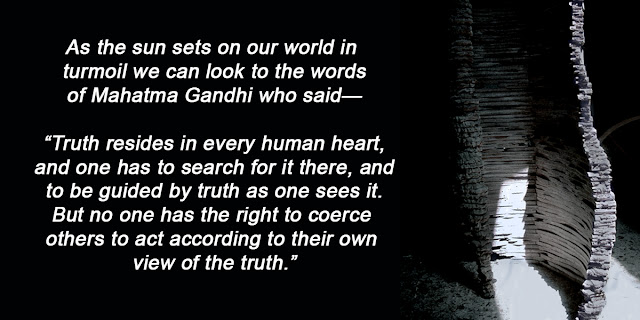In the month of April Muslims celebrate Ramadan, Christians commemorate Easter and Jews observe Passover. During this holy period it’s time to take stock and consider the tenets of the predominant world religions—reflection, prayer, redemption, gratitude and compassion.
As tribalism, war and persecution increases worldwide we are once again faced with an existential dilemma. What are the root causes of these ongoing animosities—intolerance, fear, greed, revenge or just human nature?
• There are many reasons for the Russian invasion of Ukraine—Ukraine forging closer ties with the EU and NATO; control of Eastern Ukraine’s energy assets; Putin’s nationalistic claim that Russians and Ukrainians are one people; and the ongoing religious feud involving the split between the Ukrainian and Russian Orthodox Church which resulted in Ukraine receiving religious autonomy from Russia in 2019.
• In 1947 the Middle East was carved up by the British setting in motion an ongoing dispute about who gets to inhabit “the holy land.” This hostility is prevalent today as authority over Jerusalem is highly contested due to the presence of holy sites for Christians, Jews and Muslims in the city. The Jewish State of Israel and Muslim Palestinians are still trying to resolve this territorial conflict.
• The discord between Saudi Arabia (Sunni) and Iran (Shia)—each with its own version of Islam—has intensified over the last forty years with proxy wars currently being engaged in Syria, Yemen, Iraq, North Africa and Central Asia.
• Both Sunnis and Shiites read the Quran and believe that the Prophet Muhammad was the messenger of Allah. The primary differences between the sects is their belief over who shall succeed the Prophet Muhammad. Their prayer rituals are similar but Shiites stand with their hands at their sides and Sunnis put their hands on their stomachs.
• Mob violence involving targeted attacks on person and property against Christian communities is also prevalent in some areas of the Middle East particularly in Iraq, Syria and Egypt.
• Hindus and Muslims in Southern Asia have had cultural and religious differences since the end of the Mughal Empire.This conflict continued throughout British Rule and culminated with the 1947 Partition that split the two factions into Hindu majority India and Muslim majority Pakistan. The Himalayan region of Kashmir continues this ongoing struggle for control between these two combatants.
• In China the ethnic minority Muslim Uyghurs are persecuted by the government and sent to “re-education camps,” made to do forced labor, tortured, and in some cases women are being sterilized, forced to have abortions, and sexually abused.
•In North Korea Christians are deported to labor camps as political criminals or in some cases like possessing a bible they are executed on the spot.
• In Myanmar the military and Buddhist nationalists have perpetrated ethnic and religious persecution against the Sunni Muslim Rohingya people. In order to escape wide-scale human rights violations over a million Rohingya have fled to other countries.
•Africa has become a front line in the jihadist war waged by rival factions of al-Qaeda and the Islamic State (IS) whose mission is to defend Islam. Al-Qaeda and IS share a common loathing for secular, Western-supported rulers who they call “apostates.” (BBC News)
•The religious right in the United States questions science, wants to control womens' bodies and opposes critical race theory in schools, LGBTQ rights, and the Black Lives Matter movement. They believe that the 2020 election was stolen, the January 6th arrested rioters are political prisoners and that Christian morality is the necessary foundation for governance in a free republic.
To See More of Jeff Key's Artwork:
Website: www.jeffmkey.com







